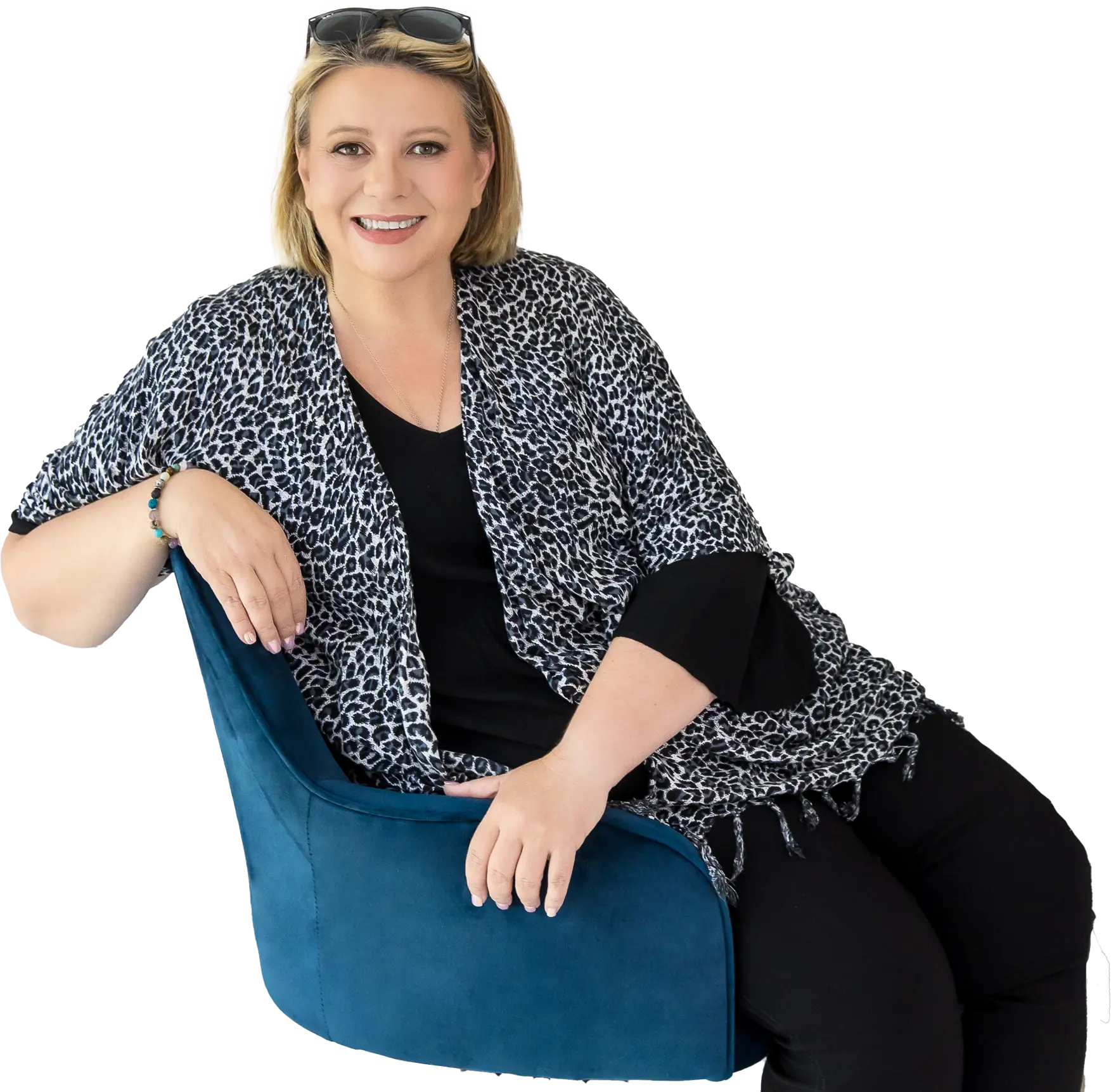How Our Behaviour Affects Other People’s Mental Health, Mental Health Awareness Starts With Us. When we talk about mental health, the focus is often on self-care, resilience, and asking for help – and that’s incredibly important. But there’s another side to mental health that we rarely discuss: the impact of our behaviour on others.

Mental health isn’t only shaped by what happens to us; it’s also shaped by the people around us – their words, their actions, and even their silence. Every interaction has the potential to either strengthen or harm someone’s sense of safety and self-worth.
So, this Mental Health Awareness Month, let’s flip the perspective. Let’s talk about personal responsibility, empathy, and what it really means when I say “don’t be a jerk.”
Because kindness isn’t just about being polite – it’s about being emotionally aware.
The Hidden Forms of Harm
We tend to think of bullying as something loud, obvious, and aggressive. But often, the most painful behaviours are quiet – subtle actions that erode someone’s confidence and sense of belonging over time.
Bullying by exclusion happens when people are left out of conversations, group chats, or social spaces. It’s when invitations mysteriously stop arriving, or messages go unanswered. The silence can be deafening. It tells a person, “You don’t matter.”
Ignoring someone can be equally damaging. It’s a form of emotional cruelty disguised as boundary-setting or busyness. When someone consistently dismisses your presence, refuses to acknowledge your contributions, or withdraws connection without communication, it can feel like punishment – and it leaves emotional scars.
Then there’s dishonesty and broken trust. Lies – even “little white” ones – can destroy psychological safety. When people can’t rely on your word, they begin to question their reality.
Gaslighting takes that to another level. It’s when someone manipulates the truth, making another person doubt their feelings or memories. It’s not always dramatic; it can be subtle – a quiet undermining of another person’s truth.
And finally, poor integrity. This includes gossiping, saying one thing and doing another, or failing to take responsibility for your actions. Integrity isn’t about perfection – it’s about alignment. When your words and actions match, people feel safe. When they don’t, people feel uncertain, anxious, and unseen.
These behaviours may seem minor or unintentional, but their impact can be profound. People rarely forget how you made them feel.
Why We Do It (And How to Stop)
Before we rush to judge others or ourselves, it’s important to understand why these behaviours happen. Most of us don’t set out to hurt people. But when we’re stressed, insecure, or disconnected from ourselves, we act from protection, not compassion.
- We ignore someone because we’re avoiding discomfort.
- We stay silent because confrontation feels unsafe.
- We lie because we fear rejection or judgement.
Behind most hurtful behaviour is a nervous system that feels under threat. When we’re dysregulated – operating from fight, flight, freeze, or fawn – empathy goes offline. Our body prioritises survival, not connection.
That’s why nervous system regulation is so vital in relationships. When we learn to calm our own stress responses, we become more present and less reactive. We stop projecting our pain onto others. Learn more about nervous sytem regulation in last month’s blog
To change, we must become aware. Here are a few powerful self-reflection questions:
- Am I reacting or responding right now?
- Would I feel safe if someone treated me this way?
- What am I avoiding by staying silent or being dishonest?
- Is my behaviour aligned with my values?
When you can answer those questions honestly, you begin to move from reactivity to responsibility – and that’s where growth begins.
The Ripple Effect of Integrity a.k.a the ripple effect of don’t be a jerk
Integrity is the foundation of emotional safety. When we act with honesty, consistency, and empathy, we create environments where people can relax, connect, and be authentic.
Think about the last time you felt truly safe with someone. Chances are, it wasn’t because they were perfect. It was because they were real. They said what they meant, did what they said, and made you feel heard.
In workplaces, friendships, and families, integrity is magnetic. It builds trust and deepens connection. Without it, people walk on eggshells, constantly trying to interpret mixed signals or protect themselves from disappointment.
In my own work as a kinesiologist and mind-body medicine therapist, I’ve seen how energy doesn’t lie. When someone says one thing but feels another, the body knows. Misalignment shows up as tension, fatigue, anxiety, or even illness.
Emotional honesty is energetic hygiene. It clears the space between people. It allows energy – and empathy – to flow freely again.
Bullying by Exclusion: The Silent Epidemic
Exclusion can sometimes hurt more than open conflict because it’s invisible. It’s the quiet kind of cruelty that leaves people doubting themselves. It’s also one of the most socially accepted forms of bullying, especially among adults.
When someone is left out, ignored, or subtly pushed away, their nervous system interprets it as danger. Humans are wired for connection – being “cut off” feels life-threatening to the body. Chronic exclusion can lead to symptoms of anxiety, depression, and social withdrawal.
If you’ve ever been on the receiving end, you’ll know the ache it leaves behind – the wondering what you did wrong, the hypervigilance in every social setting afterwards.
And if you’ve ever been on the other side – maybe avoiding someone because of discomfort or group pressure – it’s important to pause and ask: “What’s my impact here?”
Choosing inclusion, even when it’s uncomfortable, is a radical act of kindness.
How to Practise Empathy and Accountability
Empathy isn’t about agreeing with everyone. It’s about understanding that everyone has their own story, their own nervous system, and their own pain.
Here are some practical ways to practise empathy and accountability:
1. Pause before responding. Take a breath. Regulate your nervous system first.
2. Be honest – with kindness. You can tell the truth without causing harm.
3. Apologise when needed. Owning your impact is powerful and healing.
4. Listen more than you speak. True listening helps others feel seen and valued.
5. Include others intentionally. Look around and ask, “Who might be feeling left out?”
These small acts don’t just improve relationships – they contribute to a healthier community and collective wellbeing.
The Link Between Integrity (don’t be a jerk) and Mental Health
Poor integrity doesn’t just damage relationships; it damages mental health. When we act out of alignment, we create internal stress. Our nervous system becomes confused – we say one thing but do another, which creates tension within us.
Conversely, living with integrity supports nervous system regulation. When your actions match your values, you feel grounded and confident. You move through life with a sense of peace because you’re not constantly managing internal conflict.
For those around you, your integrity provides safety. They don’t have to guess your intentions or worry about hidden motives. This predictability helps their nervous systems relax too – and that’s the essence of emotional wellbeing.
How Unkindness Creates Collective Dysregulation
Every act of cruelty, dishonesty, or exclusion contributes to collective nervous system dysregulation. Think about it: when someone experiences gaslighting or betrayal, their stress response spikes. If that happens repeatedly, their baseline shifts – they live in survival mode.
Now multiply that across workplaces, families, and communities. We begin to see an epidemic of burnout, anxiety, and disconnection.
The antidote? Conscious awareness. Regulating our own nervous systems, taking responsibility for our impact, and choosing empathy over ego.
Don’t Be A Jerk: The How To
Here are some grounded, real-world ways to protect others’ mental health through your own actions:
- Regulate before you respond. Take a moment to breathe before reacting.
- Don’t gossip. It poisons relationships and undermines trust.
- Communicate clearly. Say what you mean – even if it’s uncomfortable.
- Follow through. Keep your word or own it if you can’t.
- Be inclusive. Invite others into conversations and spaces.
- Reflect regularly. Check in with yourself: “Am I proud of how I showed up today?”
Remember: being kind doesn’t mean being passive. It means being aware of your impact and choosing actions that align with integrity.
The Bigger Picture: Compassion as a Collective Responsibility
When we take responsibility for our behaviour, we become part of the solution – not the problem. Mental health is not just an individual pursuit; it’s a collective responsibility.
You don’t have to be a therapist or a wellness professional to make a difference. Every time you act with compassion, listen without judgement, or own your mistakes, you are contributing to someone else’s healing.
As a society, we often glorify independence. But true strength lies in interdependence – the understanding that we all affect one another. The more we choose empathy, the more resilient our communities become.
The Courage to Be Kind
Being kind isn’t always easy. It takes awareness, vulnerability, and courage. It asks us to hold a mirror up to our own behaviour and take ownership of the ripples we create.
But the reward is enormous. When we lead with integrity and compassion, we create safer, more authentic spaces where everyone – including ourselves – can thrive.
So, this Mental Health Awareness Month, let’s expand the conversation. Let’s not only ask “How can I take care of my mental health?” but also “How can I help protect yours?”
Because the truth is simple: the world doesn’t need perfect people. It needs people who choose to be kind, accountable, and aware of their impact.
That’s what it truly means when I say don’t be a jerk.
Need Support on Your Healing Journey?
Hi, I’m Alice Bullivant, Bella Vista based kinesiologist, mind-body medicine therapist, and founder of KinesiAlice. I help people like you tune into what your body is really saying, clear the emotional and energetic blocks holding you back, and reconnect with your inner calm, clarity, and confidence.
I offer one on one sessions in Kinesiology, Neuro Transformation Therapy, Human Design Coaching, The Business of Soul available both online or in person and Soulnar Sound & Energy Healing exclusively in my Bella Vista clinic.
Book your session or get in touch if you’re unsure where to start. I’d love to connect with you.

